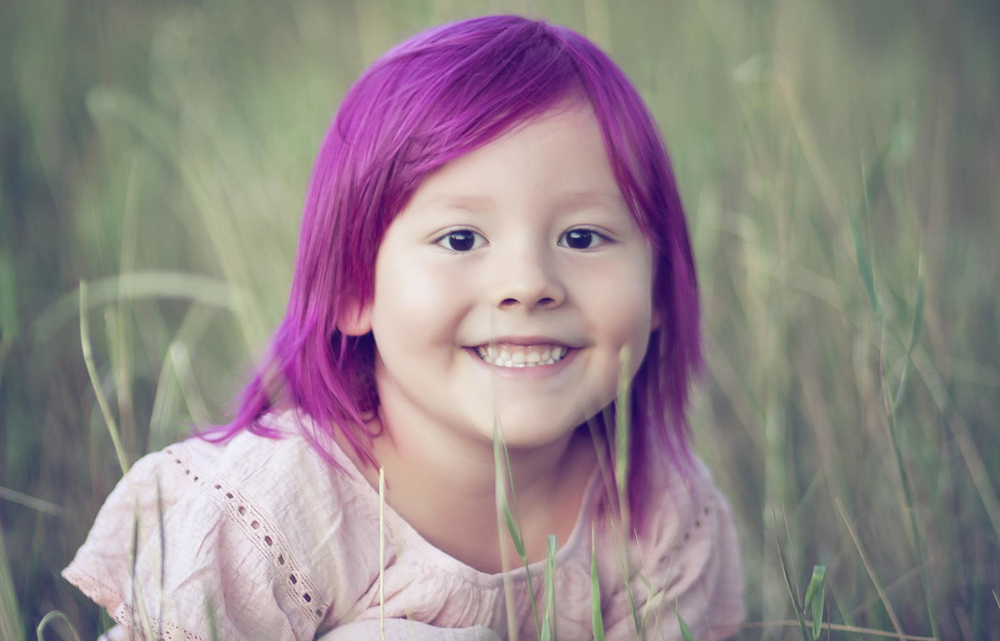When Eric Juhola was making the rounds with his husband Jeremy Stulberg for their last film “Broken Heart Land,” which Juhola produced and Stulberg directed about a young, gay Oklahoman named Zack Harrington who took his life after a proposal in his small town to recognize LGBTQ History Month led to merciless public opposition, he was taken aback by the number of people who congratulated them on shining a light on an important story for the LGBTQ community but wondered whether they could’ve broadened their spotlight a little more.
“They made a point of saying there is no conversation about trans issues — somebody actually asked if we could put a trans person in the film,” recalls Juhola, who had not only locked picture, but whose story didn’t organically involve a trans person. “Obviously, we couldn’t do that.”
However, Juhola took the comments to heart and for his feature documentary debut, he found himself in the position to make a groundbreaking film with “Growing Up Coy,” which follows the case of six-year-old Coy Mathis, who was born a boy but identifies as a girl, making things complicated as she begins to attend Eagleside Elementary School in Fountain, Colorado where the principal informs the Mathis family that Coy won’t be allowed to use the girls’ bathroom. A lawsuit against the school ensues, leading to national headlines, but Juhola carefully and compassionately locates the far more wrenching internal struggle of Coy’s parents Jeremy and Kathryn, who tend to a brood that includes triplets — one of whom was born with cerebral palsy — and a another daughter who is autistic, as they deal with truly uncharted territory in creating as normal a life as possible for Coy.
“Growing Up Coy” bears witness to history as Coy’s case sets precedent when it was resolved in 2013 by Colorado’s Civil Rights Board, but beyond becoming an important historical document, the film provides unique insight into what anyone who dares to stand up for their rights must endure when their fight becomes public, capturing the Mathis family before and after their legal battle becomes fodder for the 24-hour news cycle, resulting in considerable cost for all involved no matter what the outcome. Just before the film made headlines of its own this week as the opening night film of the Human Rights Film Festival in New York and a highlight of the Frameline Film Festival in San Francisco, Juhola spoke about how he was able to get in on the ground floor of the case, treating the subject with sensitivity and realizing he was making a film that would address generations long after this one.
I had been in touch with [Michael Silverman] the family’s lawyer who’s also based in New York because he works for an organization [Transgender Legal Defense & Education Fund] that specifically does legal work for transgender clients and we had actually been talking for years about the possibility of making a documentary about transgendered civil rights. It was around December 2012 when he first told me about the Mathis family and the fact that Coy was only six years old at the time and they were going to be launching this complaint against her elementary school really made me feel that this is something that should be documented, no matter how it turned out, so that everybody could see how something like this could work.
Why was your desire so strong to make a film about transgender rights?
Just on a personal level, I felt gay marriage became legal in New York and shortly before that “don’t ask, don’t tell” was repealed and it just seemed like there were all of these rights being gained for the gay and lesbian community, but not the transgender community. At the time we started, transgender issues were not really being talked about. In 2012, that was before “Transparent” was on the air, before Caitlyn Jenner transitioned, it was before all these other TV shows and trans-issues were being talked about and there was just so little was being done in terms of support and visibility. It is considered the LGBT community — trans people are a part of our community — and I felt like being on the forefront of a trans rights case would be really important to document because of that.
Was it interesting to be part of the media as you watched them prepare for what was a media campaign?
It was. I don’t think I knew that the media was going to play such an interesting role in the film. For me, the film was really about this family and their fight for Coy to use the girls’ bathroom and when they did go public, I did not know how big it was going to get. I thought maybe they would get a few local stories, but then it went national, then international and that started having an effect on the family. And I don’t know if I really looked at myself as the media.
I feel like I differentiated [myself] from that [because] when the media came and did a story about the family, they would come in for an hour, shoot with them and then put it up on the nightly news. We really spent a lot of time off camera talking to the Mathises about what we wanted to do with this documentary, which was to educate people about what it’s like to be transgender and how to parent a transgendered child. We wanted to humanize what they were going through and we talked about the fact that we could be in production for years and not days or months and that was something that they were really open to at the time.
Was it a different experience before and after they made their case against the school public?
Once the announcement happened, everything was just super fast-paced. We had made documentaries before — and when I say “we” I mean my husband and I and our team have all worked together on other films — and our last film, we really were able to just take our time. With this film, once they went public, it felt like there was something new happening every day that we wanted to be there to document.
It was really intense once the media hit and of course not all of the media stories that came out were positive. A lot of the local news outlets would use the wrong pronouns. There was one case where they were asking their viewers to vote if this boy should be allowed to use the girls’ bathroom and in general the news media wasn’t necessarily educated on the issue. They are trying to find content for a nightly news program and you’re at the mercy of biases that they might already have in terms of what they decide to broadcast or put on the web.
Were you were able to tune out that national conversation and just make your movie or did that actually influence the film that you wanted to make?
I don’t feel like we were influenced by the media except in the sense that they’re almost like the antagonist in the film because there isn’t really anything else in the film that the Mathises are up against. The media is really what created pressure on their family and the other siblings and it’s something that they had to overcome. My focus on making the film was really just about documenting this family and what they were going through on a daily basis [with a] very fly on the wall approach, which is how we’ve made our past documentaries. I rarely asked questions on camera, especially to Coy and the other kids. That felt more appropriate to me to let the other news media do.

What really helped with that is just having open communication with the Mathis family and taking their lead and talking to them openly and honestly about what they were comfortable with. Everything that we filmed was with their consent and their cooperation and it was important to be respectful and sensitive to that. That’s why we really didn’t approach any of the scenes that we shot in any other way than really just observational and to stay as much out of the way as possible. When we did ask interview questions to the parents, it would be usually at the end of the day or when we were finished so that the verite filming could just play out as it happened. If they asked us not to film something for whatever reason we would totally respect that.
There’s a scene in a park with the mother of another transgender child, which is really powerful — it’s one of the few times you stray from the Mathises as your focus, but in telling the story of how she allowed her child Dylan to choose a new name, it says so much about what a difficult process it is. Was that something you just happened to capture?
That was a support group that a bunch of the parents had started in southern Colorado who have young kids who are going through gender non-conforming issues. Jeremy and Kathryn invited us along to film at their support group and it was incredible because it was the first time when we realized as filmmakers that this actually isn’t just about Coy. This is about so many other kids and families who are dealing with this issue — kids who are younger than Coy who are going to be affected by the outcome of this decision when they come up in school after her. That was really powerful for us to see these families come together and talk about the lack of support when you’re talking about young kids.
It seemed like there was support if you had a teenager who was transitioning, but when you’re talking about a six-year-old, or five-year-old, there really wasn’t to help parents navigate what do you do if your child is suddenly exhibiting gender non-conforming behavior. So that was a powerful moment for us too, having that realization on set.
Is there a form of outreach you’re planning to have accompanying the rollout of the film?
We really want to plan a community screening tour, especially targeting these states that are suing the US government [regarding] how to handle the bathroom [situation] for transgender students. There are states where lawmakers need to be educated on this issue because you hear it in the news every day and the arguments being made against transgender people using the bathroom that they identify with are ridiculous because it just feels so obviously that a lot of these lawmakers or whoever is making these bathroom policies have never met a transgender person. I’m hopeful that something good that can come out of making this film, and we can help educate people about who exactly it is we’re talking about and what it means to not allow someone like Coy to use the bathroom that she identifies with.
“Growing Up Coy” does not yet have U.S. distribution. It will play at Frameline in San Francisco on June 25th at 11 am at the Castro Theatre.






Comments 1